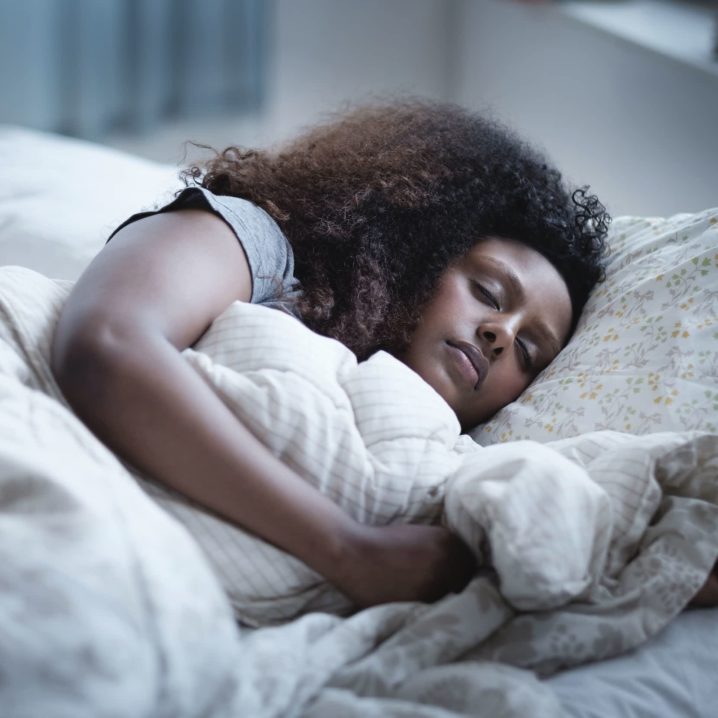
- POPSUGAR Australia
- Fitness
- What You Should Know About Sleep Posture – and How to Get a Better Night's Sleep
What You Should Know About Sleep Posture – and How to Get a Better Night's Sleep

“That can’t be comfortable! How can you sleep like that?” my fiancé said to me. We were discussing my sleep posture, or rather, my habit of sleeping in the strangest positions.
I’ve tried sleeping on my back, but it doesn’t last long throughout the night. That doesn’t surprise me too much, though – according to Dr. Rahul Shah, an orthopedic neck and spine surgeon in southern New Jersey, controlling your posture while you’re sleeping is “virtually impossible.”
“Your body will assume whatever position it finds comfortable or [is] familiar with based on your prior experience,” Dr. Shah said.
If you’re waking up with neck or back pain regularly and are logging night after night of mediocre sleep, you might be wondering if your sleep posture is to blame. The University of Rochester Medical Center writes that sleeping with your ears, shoulders, and hips aligned may help protect your back. But, Dr. Shah said that he has found that many people who sleep in “nonaligned” positions for the spine still have a restful night’s sleep. And I would say that latter is definitely the case for me.
Before attempting to switch up your go-to position to alleviate pain or get a more restful sleep, Dr. Shah recommended reassessing your mattress and pillow.
“Because there is such individual variation in the type of posture that one can have for restful sleep, in my view, it’s most important to identify the types of pillows/mattress that have given one the best sleep in the past,” Dr. Shah said. “This experience will serve as the best guide for the tools one needs to get the most restful sleep.”
If your neck and shoulders are the areas of concern, Dr. Shah said to experiment with different pillows. However, if your low back is the place of discomfort, you may need to focus on your mattress and test out varying levels of stiffness.
It’s also important to note, however, that mattress preference is fairly subjective, and according to the University of Rochester Medical Center, there’s little research on what’s best for your back.
“If one is used to a more firm mattress, but [is] then placed in a softer mattress, [they] may experience more discomfort,” Dr. Shah said. “Additionally, the type of pillow may also make up an important part of sleep. As such, some may find a pillow with a cutout for the neck more beneficial, whereas others may find a firmer or fuller pillow more comfortable.”
Instead of diagnosing yourself with a mattress or pillow problem, it’s always best to play it safe and speak to your doctor about the pain you’re experiencing to receive a personalized treatment plan.
Click here for more health and wellness stories, tips, and news.
Related: Mattress Shopping Made Easy: Customers Always Buy These 7 Top-Rated Picks

